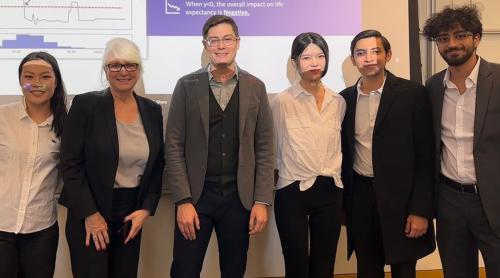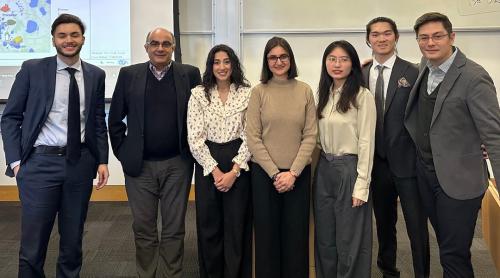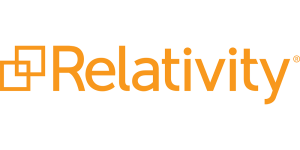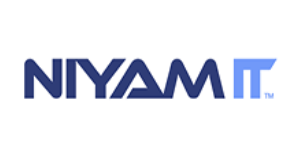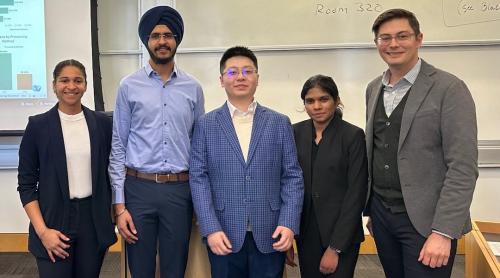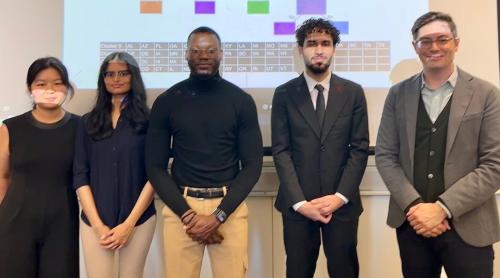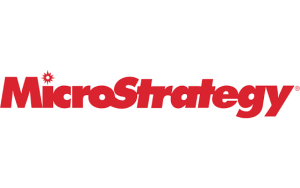MSBA Practicum & BSBA Capstone Projects
The MSBA practicum and BSBA capstone projects are designed to apply analytics knowledge gained in the classroom to real-world problems.
In these one-semester courses, students work in teams on a sponsor’s project to receive academic credits. External industry sponsors propose the project and work closely with the students over the semester.
- How It Works
GW School of Business students conduct a pro-bono project proposed by an industry sponsor. With the help of their industry sponsor and GW faculty mentors, students embark on a full-cycle data analytics project using tools provided by GW and the sponsor. Projects are often based on mock data or publicly available data; students do not need access to proprietary information. Teams of several students are matched to accepted projects, and the industry sponsors meet with the team and provide guidance and feedback for the duration of the project.
These projects are not official internships. Some project sponsors require students to sign non-disclosure agreements (NDAs). In some projects, software licenses or use of premium cloud-based software may be required to conduct in-depth analysis, create complex models, etc. Any costs incurred will be presented to sponsors as a budget before work begins.
- How Sponsorship Benefits Your Company
These projects offer:
- The opportunity for companies to look at a problem from a fresh perspective.
- Access to a small team of junior-level data scientists and developers to prototype a working solution to that problem.
- The right to utilize any work product or IP developed by the student team through the project.
- Volunteer or professional development opportunities for sponsor mentors.
- Acceptance Criteria for Sponsorship
Submitted projects are assessed for feasibility and quality.
- Positive considerations for feasibility include:
- Use of public data, or data that is stored and controlled by the sponsor with access provided to students.
- Use of standard computing technologies, or specialized computing technology that is provided by the sponsor.
- Medium complexity and difficulty levels that challenge a student group, but are realistically achievable in the course of a semester.
- Exposure to novel technologies and approaches.
- Positive considerations for quality include:
- Polished proposals.
- Proposals that align with industry standards or best practices.
- Proposals that align with ethical and responsible AI practices.
- Positive considerations for feasibility include:
- Learning Objectives for Students
After completing these projects, students will be able to demonstrate the following abilities:
- Design, develop, and execute a data-driven investigation or prototype.
- Frame a data-driven study based on a client’s requirements and the available data.
- Identify the value proposition for a project and the appropriate questions that will inform progress.
- Document and describe the trade-offs involving the data or technology, its quality and availability, depth of analysis, and available resources.
- Convey project deliverables in different modes — one for academic requirements and one for project sponsor.
- Student Responsibilities
- Engage in regular sessions with the sponsor to thoroughly understand scope of work, including (but not limited to): clarifying specific project requirements, gathering feedback, and discussing progress and any challenges.
- If and when the sponsor introduces new topics, methodologies and/or technologies, students must conduct their own research to enhance their understanding.
- In challenging situations, students must work collaboratively with the sponsor and make use of any academic resources available to them.
- Students are expected to maintain a high level of professionalism throughout the project.
- At the conclusion of the project, each team is required to submit a deliverable based on the sponsors’ requirements.
Submit a Spring 2025 Project Proposal
Project sponsor proposals are due by Friday, August 22, 2025. Acceptance decisions will be announced by Friday, August 27.
Explore Our Fall 2023 MSBA Practicum Projects
The 2023 Fall Analytics Practicum included 12 sponsoring organizations, 13 student projects, and 54 graduate and undergraduate students. Sponsors ranged from some of the largest banks and professional services companies in the world to specialized software providers and D.C.-based contractors and consultants.
Practicum projects focused on timely and meaningful topics such as:
- Analysis of telehealth services and social determinants of health
- Auditing LLM systems
- Building AI-based chatbots
- Climate change resiliency
- COVID-19 impacts on nursing homes
- Cybersecurity analytics
- Financial fraud detection
- LLM applications in consumer finance
- Sales forecasting
- Strategic data management initiatives
- Tracking and risk-scoring large cargo ships
Nine out of 13 organizations expressed a strong interest in sponsoring again in the future, and three out of 13 organizations noted some interest in sponsoring in future semesters. See below for additional details relating to the 13 projects.
Social Determinants of Health and Access to Credit Impact on Life Expectancy
Congratulations to Danyu Z., Yachen Wu (Kendall Wu), Rodrigo R. Jaar and Swapnil Duggal on an exceptional project with FI Consulting focusing on the impact of social determinants of health and access to credit on life expectancy. The group used open tools like Python, PiML, and Neo4j to train explainable regression and graphical models for complex health issues.
Project sponsor: FI Consulting
Understanding Climate Resiliency in the Agricultural Supply Chain
Congratulations to Mallika Y., Salaah Khan, Xinyu (Cindy) Duan, and John Zhang (Yuqi Zhang) on their successful project with Mitre focusing on understanding climate resiliency in the agricultural supply chain. Their innovative agent-based modeling approach provided valuable insights into how extreme weather events impact the agricultural supply chain with a focus on Florida's citrus fruit sector. This team used tools like rstats, The AnyLogic Company, Excel, and other data analytics software to model the effects of climate change on agriculture in the region.
Project sponsor: Mitre
Adversarial Analysis of Large Language Model (LLM) Applications
Congratulations to Priyanka Bhatia, Ben Wehrley and Xiaosong (Frank) Yao on a great project with Relativity focusing on adversarial analysis of large language model applications in legal tech. Their red-teaming approach exposed potential data leaks between ChatGPT sessions and other risks.
Project sponsor: Relativity
Generating Datasets for Validating Complaint-classification Natural Language Processing
(NLP) Models
Congratulations to Kathleen McQuiddy, Joon Kyu Hong, Stephanie Palanca, and Ian Kang for their impactful project with Wells Fargo working with large language models to develop synthetic complaint datasets to enhance accuracy in classifying customer complaints, a key step forward in enhancing customer experience. They also used statistical quality control approaches to measure the reliability of their approach.
Project sponsor: Wells Fargo
WWF Fact-Based AI Chatbot
Congratulations to Zhipeng Zhao, Pranjal Shukla, Wenxuan Xue, and Saloni Sharma on their successful AI chatbot project with the World WildLife Fund leveraging large language models and natural language processing to develop a prototype chatbot to enhance search on WWF’s website.
Project sponsor: The World WildLife Fund
Data Visualization and Detecting Anomalies in Paycheck Protection Program (PPP) Loan Data
Congratulations to Pavneet Singh, Rose Hemans, Kaixuan Han, and Bagya Widanagamage for their impactful project with Niyam IT on data visualization and anomaly detection in federal payroll protection loan data. This team tackled the challenge of identifying potential fraud in loan applications using open source Python tools and presented their results on GitHub.
Project sponsor: Niyam IT
Exploring the Use of Ontologies for Business Analytics
Congratulations to Sibeso Mubonda, Wanting Liu, Lejla Skahic, and Stephen Gaffney for their insightful work with Mitre on exploring the use of ontologies for business analytics. A major issue in AI today is the use of available data versus appropriate data. This project built a proof of concept for using ontologies to drive data collection that is aligned to an organization's goals and strategies, potentially enhancing data integration and decision-making in various business domains.
Project sponsor: Mitre
Soniat Analytics
Congratulations to Nigel Nyajeka, Xinyi Li, Prachi Pathak, and Gaurav Sethi on their insightful project with alum Justin Soniat and Gainwell Technologies. The team analyzed CMS COVID-19 data, uncovering insights on the pandemic's deadly impact across nursing homes in various states and regions using descriptive statistics, linear models, decision trees and clustering in R, Python and Tableau.
Project sponsor: Gainwell Technologies
Cyber Threat Recon
Congratulations to Emmanuel Asong, Dimple Modi, Bernard Low, and Rachelle Azulay on their successful cybersecurity project with Deloitte developing AI-driven cyber threat analytics for the Department of Defense. The team used unsupervised machine learning to summarize and cluster data breaches, informing strategic responses.
Project sponsor: Deloitte
Agency Sales Forecasting
Congratulations to Chip Betterley, Shih-Wei Pan, Anh Nguyen Tuan Phan, and Adelyn Liu for their successful project with BOLT Staffing. The team crafted a dynamic forecasting model using Tableau for visualization, enabling BOLT to better simulate future scenarios with enhanced accuracy.
Project sponsor: BOLT Staffing
Evaluating Clinical Outcomes and Patient Satisfaction in Telehealth Services
Congratulations to Lindsay Neff, Sai Chaithanya Vadakattu, Ashi Tiwari, and Jesse Mutamba for their work with Accenture on evaluating telehealth services. The team leveraged tools like PowerBI and PiML to compare clinical outcomes and patient satisfaction between telehealth and in-person services.
Project sponsor: Accenture
Ship Explorer
Congratulations to Theodoros Pateros, Yeobeen Yun, Fang (Eric) Tien, and Salem Addisu at the helm of their successful Ship Explorer project with Agricultural Bank of China New York. This team developed a cloud-based tool to enhance shipping transparency and combat illegal activities. Utilizing big transactional datasets, Python and SQL, they engineered a solution to track ship movements and assess compliance risk, visualized through an interactive web interface.
Project sponsor: Agricultural Bank of China - New York
Bias Assessment Metrics & Measures (BAM) Repository
Congratulations to Sundaraparipurnan Narayanan, Estella Man M., Ying Hao, Yukti Handa, Logan Brand, and Yifan L. for their excellent work with AI Tech Ethics on this bias assessment metrics & methods (BAM) repository project.
Project sponsor: AI Tech Ethics
- Explore Our Spring 2023 MSBA Practicum Projects
The Spring 2023 Analytics Practicum included 10 sponsoring organizations and 58 graduate and undergraduate students. Sponsors ranged from some of the largest banks and professional services companies in the world to cutting-edge startups and specialized D.C.-based contractors and consultants.
Practicum projects focused on timely and meaningful topics such as:
- Training robust machine learning models for credit scoring
- Bias testing and remediation for machine learning models
- Machine learning for compliance tasks
- Building chatbots
- Cybersecurity
- Auditing chatbots for harmful outputs and hidden biases
- Greenhouse gas emission tracking and analysis
Fuzzy String Matching for Compliance Tasks
Students used open tools like H2O.ai, PiML, and Google Colab to programmatically match entities operating under different names for compliance tasks.
Project sponsor: The Agricultural Bank of China
Group members: Arij Ahmed Khan Lodhi, Carly Craffen, Guoyue Zhou, Haoyang Wang, Junhao Fan and Amanda Chen
Cybersecurity Recognizance
Students studied the application of machine learning (clustering w/Python, natural language processing w/SAS) to better understand details about recent cyber attacks.
Project sponsor: Deloitte
Group members: Nihaa Sajid, Sam Akrongold, Fangyuan Du, Keven Guan, Gabriel Roig and Hanning Yu
Greenhouse Gas Emissions Calculator
Students used government data, Python and Google Colab to create a basic green house gas (GHG) calculator to analyze CO2 emissions across industries.
Project sponsor: FI Consulting
Group members: Yu Xu, Amanda Shkreli, Baiyang Niu, Agnes Danielle Flore Nguenda, Ziyin Wang and Alpha Balde
Business Intelligence Software Market Basket Analysis
Students used MicroStrategy software, public financial data, and analyst reports to conduct a market basket analysis for the business intelligence software vertical.
Project sponsor: MicroStrategy
Group members: Zequan Chen, Charles Bloomer, Yueyang Liu, Pawan Kumar and Kerry McKeever
Modeling Climate Change Effects on Food Supply
Students focused on understanding the impacts of climate change on food supply chains with machine learning and agent-based modeling (ABMs).
Project sponsor: MITRE
Group members: Jinning Zhang, Victor Mesalles, Max Savasta, Jiahui Chen and Melissa Rwehumbiza
Automated Kinetic Incident Tracking
Students worked with the Navanti Group to refine a Shiny app for collecting data on global security incidents, upgrading a prototype to use various data APIs and named entity recognition (NER) machine learning models.
Project sponsor: Navanti Group
Group members: Vanessa Cilloniz, Yongjing Li, Katherine Grubbs, Evian Zhu, Ta-wei Lo and Adnan Lakdawala
Auditing ChatGPT
Students applied prompt engineering strategies and sentiment analysis using the AllenNLP library to better understand potential sources of bias or harm in language models like ChatGPT.
Project sponsor: Relativity
Group members: Lauren Cubell, Fulin Wang, Adeel Ahsan, Sam Roffman, Taufick Simon and Brenden Moore
Bias Testing for Machine Learning
Students focused on assessing disparities in the outcomes of machine learning models using fair lending approaches in the open-access solas-ai-disparity Python package.
Project sponsor: SolasAI
Group members: Abdulrahman Alsadoun, Jenny Yazlovsky, Elena Huang, Jinni Yang, Chao Zhang and Maximilian Smith-Uchida
Training Credit Models with the PiML Package
Students trained and evaluated several inherently explainable machine learning models, tested their outcomes for systemic bias, conducted bias remediation, and wrote a model card. They used the PiML Python package for the entire project. The model card and Google Colab notebook are available for other aspiring credit analysts and model validators.
Project sponsor: Wells Fargo
Group members: Bader Albaarrak, Jialiang Chen, Taria Herbert, Runtong Jiang, Pranita Shetty and Le Zhang
Building a Customer Service Chatbot
Students worked with the World Wildlife Fund to create a prototype chatbot using tools like SAS Text Miner, Python and NodeJS.
Project sponsor: The World WildLife Fund
Group members: Pedro Carvalho, Hao Ren, Ke Chai, Varsha Reddy Katam, Priscilla Sit and Alejandra Taboada




